There is one supplement that many people should be taking – vitamin B12. In this blog post, I am going to review why B12 is so important and who should consider supplementing and why. (You might be surprised that it includes more than just those eating a vegan or whole food, plant-based diet.)
I’ll also cover the forms of vitamin B12 supplements that are available for purchase, which is best, and how much is recommended so that you can stay healthy without wasting money.
The Function of B12
Vitamin B12 (cobalamin) is an important water-soluble vitamin that is involved in the metabolism of every cell in your body. It is a cofactor in DNA synthesis, fatty acid metabolism and amino acid metabolism.
Your Brain – B12 levels even on the low side of normal is associated with poor memory. This vitamin may play an important role in preventing brain atrophy (the loss of neurons.) Low B12 is associated with increased risk of Alzheimer’s disease.
Your Nervous System – This vitamin is critical to the normal functioning of your nervous system. It has a role in the synthesis of myelin, the insulating sheath that forms around nerves that allow electrical impulses to transmit quickly and efficiently.
Your Blood – It’s also involved in the development of red blood cells in your bone marrow and can help prevent anemia. Having healthy red blood cells ensures that adequate oxygen reaches your vital organs.
Your Bones – B12 may also have a role in maintaining strong bones. Low B12 levels is associated with lower bone mineral density and a higher risk of osteoporosis.
Your Eyes – Having adequate B12 levels may also protect your eyesight from macular degeneration, the loss of central vision.
Your Mood – B12 plays a role in the production of serotonin. Reduced B12 levels can result in lower serotonin, leading to depression. Studies show that supplementing with B12 can improve mood.
Your Energy – While B12 supplementation does not directly give you energy, it does play a role in your body’s energy production. That is why fatigue is a sign of low B12.
Your Heart – B12 lowers blood levels of the amino acid homocysteine, which is associated with heart disease.
Your Skin – Because of its role in cell production, low B12 can lead to hyperpigmentation, vitiligo and cracked mouth corners. Adequate B12 levels help you maintain healthy skin and cell turnover.
Signs of B12 Deficiency
B12 deficiency can cause severe and sometimes irreversible brain and nervous system damage. But levels even slightly lower than normal can lead to:
- Fatigue
- Lethargy
- Poor balance
- Poor memory
- Depression
- Breathlessness
- Headaches
- Pale skin
- Constipation
- Weight loss
- Loss of appetite
- Numbness or tingling in hands or feet
Who Should Take a B12 Supplement?
There are several groups that should consider taking a B12 supplement – not just vegans! But I’ll start with the plant-eaters.
If You are Eating a Healthy Vegan/Plant-Based Diet
Between 40 – 80% of the vegetarian population that is not taking a B12 supplement may become deficient.
 B12 is made by bacteria found in the soil. B12 used to be in our water supply, but now that we treat water to remove bacteria that cause cholera, we also remove the B12. When animals eat the grasses near the soil, they consume the B12 and it proliferates in their gut and produces more B12. So the most common sources of B12 in the Western diet today are meat, milk, eggs and fish. So if you are not eating animal products, you are not getting B12 from these sources.
B12 is made by bacteria found in the soil. B12 used to be in our water supply, but now that we treat water to remove bacteria that cause cholera, we also remove the B12. When animals eat the grasses near the soil, they consume the B12 and it proliferates in their gut and produces more B12. So the most common sources of B12 in the Western diet today are meat, milk, eggs and fish. So if you are not eating animal products, you are not getting B12 from these sources.
But animal foods are NOT the best sources of B12.
Meat, dairy, eggs and fish come with unhealthy cholesterol, saturated fat, hormones and toxins that lead to heart disease, strokes, type 2 diabetes, high blood pressure and certain cancers. And if you’ve heard that eggs are a good source of B12, you might be surprised to learn that you would have to eat 200-400 eggs a day to absorb an adequate amount of B12!1
Some vegans propose that all you need to do is get B12 like the animals do – eat unwashed produce grown in your own organic soil. But this is not always possible. And even if you do have an organic garden, eating unwashed produce may not be appetizing, and it certainly isn’t a reliable way to get adequate amounts of this important vitamin.
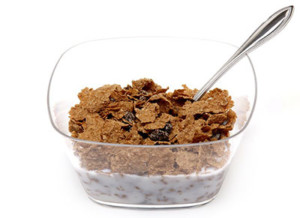 Another source of B12 is from fortified foods, including plant milks, breakfast cereals, nutritional yeast and meat substitutes. B12 is also found naturally in fermented foods like tempeh, and in the green microalgae Chlorella vulgaris.
Another source of B12 is from fortified foods, including plant milks, breakfast cereals, nutritional yeast and meat substitutes. B12 is also found naturally in fermented foods like tempeh, and in the green microalgae Chlorella vulgaris.
But unless you are tracking your consumption and calculating your B12 intake each day, relying on fortified and fermented foods and algae is not very . . . reliable.
Your best option is an inexpensive B12 supplement. (Keeping reading to learn which kind.)
If you Have Poor Absorption (Including Meat Eaters)
You might be surprised to learn that according one study, about 1 in 6 meat eaters is B12 deficient. The ones in the study with the highest levels were not eating the most meat. They were taking supplements and eating the most fortified breakfast cereal. Another study found that about 39% of the general population may be B12 deficient.
B12 deficiency can affect meat eaters as well because 1) the absorption of B12 from animal foods is so low2, and because 2) so many people have impaired absorption due to digestive problems or other conditions and certain medications.
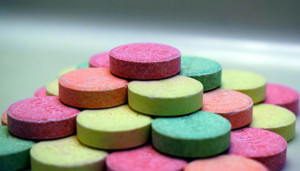 If You Are Taking Antacids
If You Are Taking Antacids
Because H2 blockers and proton-pump inhibitor (PPI) drugs reduce the gastric acid and pepsin needed to release vitamin B12 from protein for absorption, prolonged use of these drugs can lead to B12 deficiency.
If You Are Taking Metformin
Up to 30% of people taking metformin are B12 deficient. Those taking a supplement do not become B12 deficient.
If You Are an Older Adult or Have Atrophic Gastritis
About 10 – 30% of older adults have atrophic gastritis, which decreases the hydrochloric acid in the stomach, reducing the absorption of B12 from food. Lower stomach acid may also increase intestinal bacteria that consume B12, reducing the amount available to the body. Most people with this condition can absorb the synthetic B12 that is most commonly found in fortified foods and supplements.
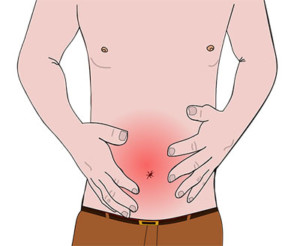 If You Have a Stomach or Small Intestinal Disorder
If You Have a Stomach or Small Intestinal Disorder
Individuals with these disorders, including celiac disease and Crohn’s disease may not be able to absorb enough B12 from food and should take a supplement.
If You Have Had Weight Loss Surgery
If you have had gastrointestinal surgery to remove all or part of your stomach, you have reduced the number of cells that create the hydrochloric acid and intrinsic factor needed to extract B12 from food. Supplementing with B12 is recommended.
B12 – What Kind?
Now that you know how important B12 supplementation is, what kind do you take and how much?
First, if you think you may be B12 deficient, get tested. Request a urine MMA, not a B12 test. There are therapies to reverse this condition before serious, irreversible damage is done.
Second, if you’ve been eating an exclusively plant-based diet and haven’t been supplementing with B12, don’t panic. If you have been drinking a fortified plant-milk or eating fortified breakfast cereal each day you have likely been getting enough B12 to avoid becoming deficient. Even if you haven’t been consuming fortified foods, it can take a couple of years for your B12 stores to be depleted, and it takes only a few months to build them back up.
There are several forms of B12 supplements on the market. The two most common forms are cyanocobalamin and methylcobalamin.
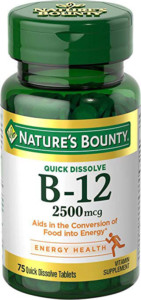 The least expensive from of B12 is a cyanocobalamin sublingual liquid, dissolving tablet or chewable. Your body readily converts cyanocobalamin to the active forms methylcobalamin and 5-deoxyadenosylcobalamin.
The least expensive from of B12 is a cyanocobalamin sublingual liquid, dissolving tablet or chewable. Your body readily converts cyanocobalamin to the active forms methylcobalamin and 5-deoxyadenosylcobalamin.
If you have seen warnings about the cyanocobalamin form of B12, this is a scare tactic to sell more expensive B12 supplements (methylcobalamin.) The cyanide molecule bound to cyanocobalamin is so miniscule it isn’t even worth mentioning. Your body will dispose of it without any ill effects. This supplement is so safe there is no upper limit. You cannot hurt yourself by taking too much cyanocobalamin.
According to the National Institutes of Health, there is no evidence supporting one form as being more bioavailable or absorbable than another. Dr. Greger at NutritionFacts.org also recommends taking an inexpensive cyanocobalamin B12 supplement.
How Much B12 Should You Take?
Here are Dr. Greger’s recommendations, based on the current guidelines:
- At least 2,500 mcg (µg) cyanocobalamin once each week, ideally as a chewable, sublingual, or liquid supplement taken on an empty stomach
- OR at least 250 mcg daily of supplemental cyanocobalamin
- OR servings of B12-fortified foods three times a day, each containing at least 25% U.S. “Daily Value” on its label
- Those over 65 years of age should take at least 1,000 mcg (µg) cyanocobalamin every day.
B12 supplementation is cheap and easy insurance against serious health problems.
Getting an adequate amount of B12 to avoid serious health problems is cheap and easy. Rather than try and calculate my intake from fortified foods, I just take a 2500 mcg sublingual tablet once a week. A $6 bottle of cyanocobalamin B12 tablets will last you over a year.
I hope you found this blog post informative and actionable. Eating a whole food, plant-based diet so you can live a long, healthy disease-free life can be fun, easy and delicious.
If you’d like to learn more about how I work with clients to help them adopt a WFPB lilfestyle that works for them, check out my 6-Week Juicy Plant-Based KickStart Program.

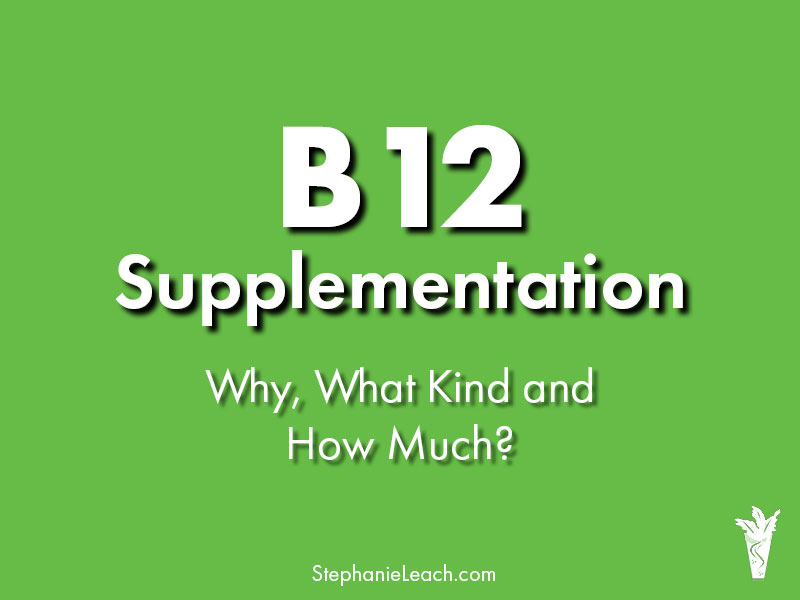

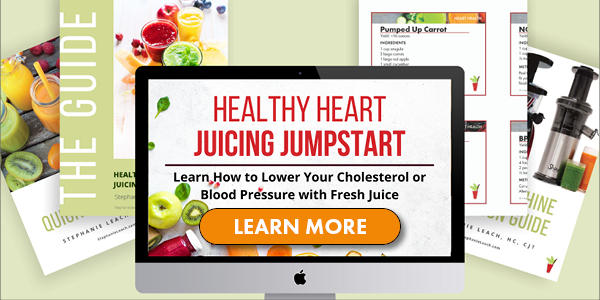


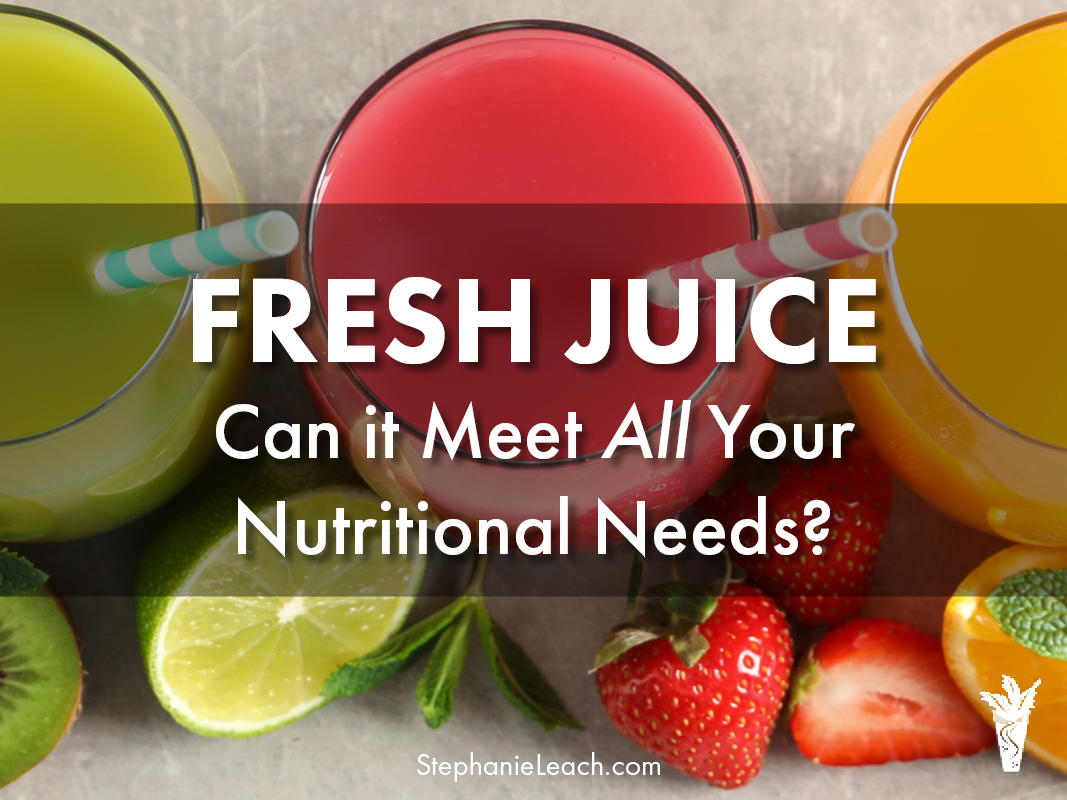
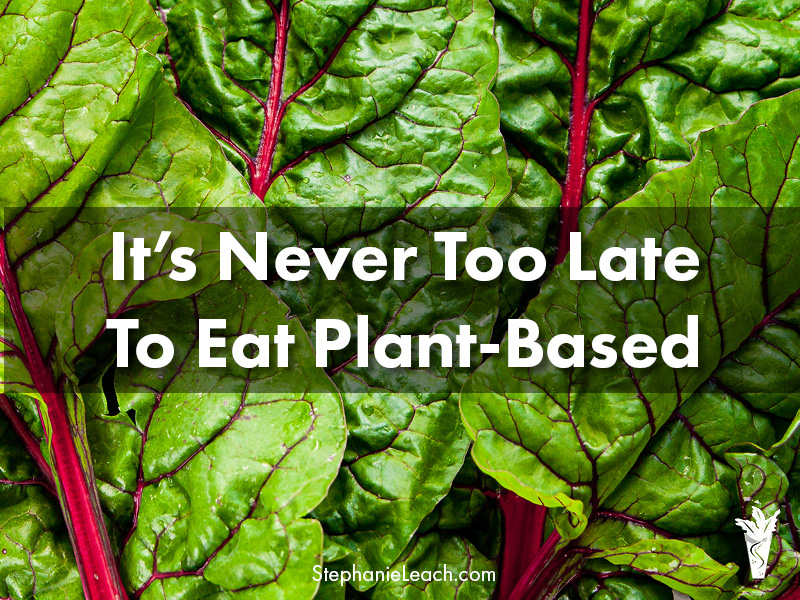
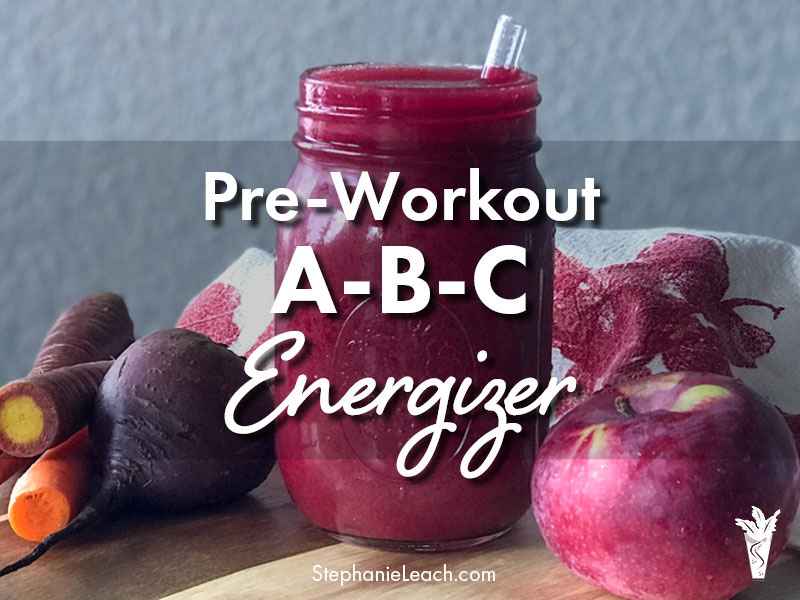

Leave A Comment